Art & Exhibitions
Agnes Denes Recreates “Wheatfield” in the Center of Milan
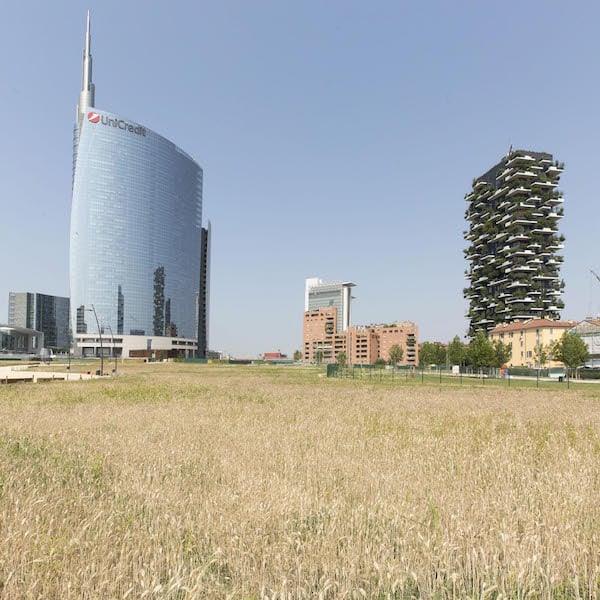
Photo: Courtesy Fondazione Nicola Trussardi

Lorena Muñoz-Alonso

Legendary conceptual artist Agnes Denes is recreating her iconic 1982 installation Wheatfield in the urban area of Porta Nuova, in the center of Milan.
The large-scale installation has been made with 1,250 kilograms of Odisseo seeds, which were planted in 15,500 cubic meters of soil, using 5,000 kilograms of fertilizer.
Denes was a pioneer of what’s now become known as “environmental art,” so no herbicides or fungicides have been used to implement the current iteration of Wheatfield—also taking into account that the field is in an urban setting that’s partially residential.
The project is a collaboration between the Fondazione Riccardo Catella, the Fondazione Nicola Trussardi, and Confagricoltura, and it is located inside the perimeter of what is set to become a public park called the “Library of Trees.”
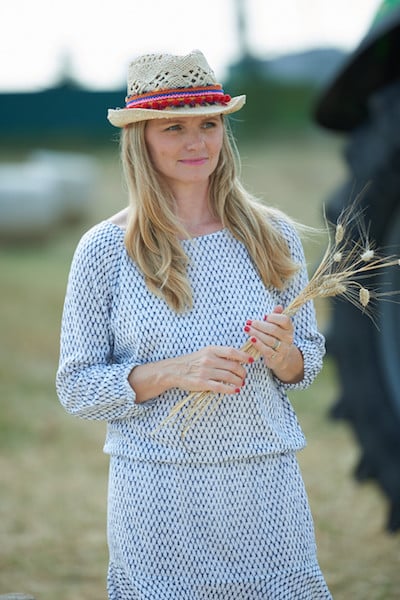
Beatrice Trussardi, president of the Fondazione Nicola Trussardi, at the harvesting.
Photo: Courtesy of Marco de Scalzi, Fondazione Nicola Trussardi.
Last Thursday, the public was invited to participate in a harvesting session to explore the ancient techniques of reaping the wheat with scythes, and threshing it with flails, as well as the modern operation of a combine and baler.
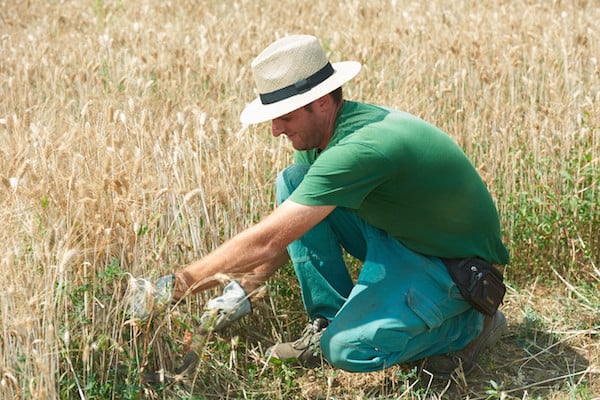
People participating in the harvesting of Agnes Denes’ Wheatfield in Milan last week.
Photo: Courtesy of Marco de Scalzi, Fondazione Nicola Trussardi.
Hungarian-born Denes first carried out Wheatfield in 1982 in New York, in a landfill in Battery Park, situated between the Statue of Liberty and the World Trade Center.
“Wheatfield was a symbol, a universal concept; it represented food, energy, commerce, world trade, and economics,” said the artist in 2008. “It referred to mismanagement, waste, world hunger, and ecological concerns,” she added.
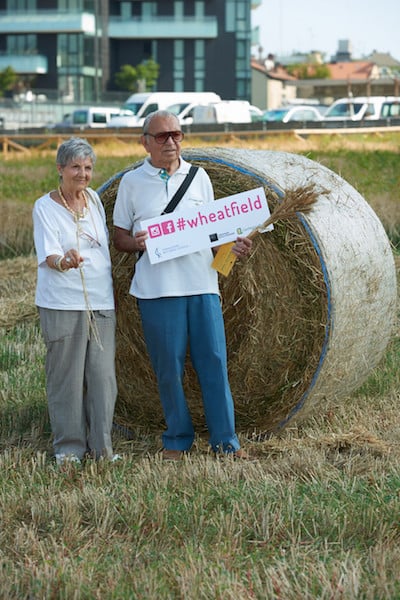
People participating in the harvesting of Agnes Denes’ Wheatfield in Milan last week.
Photo: Courtesy of Marco de Scalzi, Fondazione Nicola Trussardi.
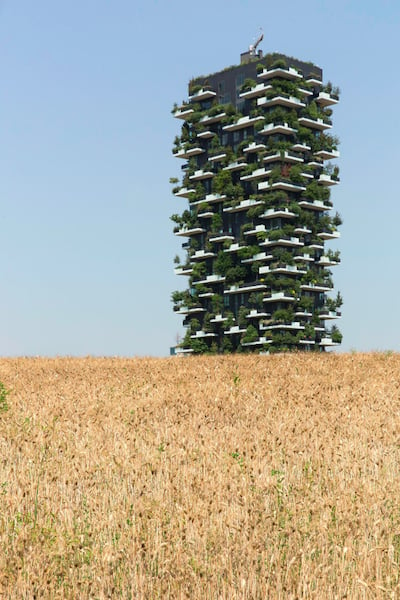
Agnes Denes’s recreation of Wheatfield in Milan.
Photo: Courtesy of Fondazione Nicola Trussardi.